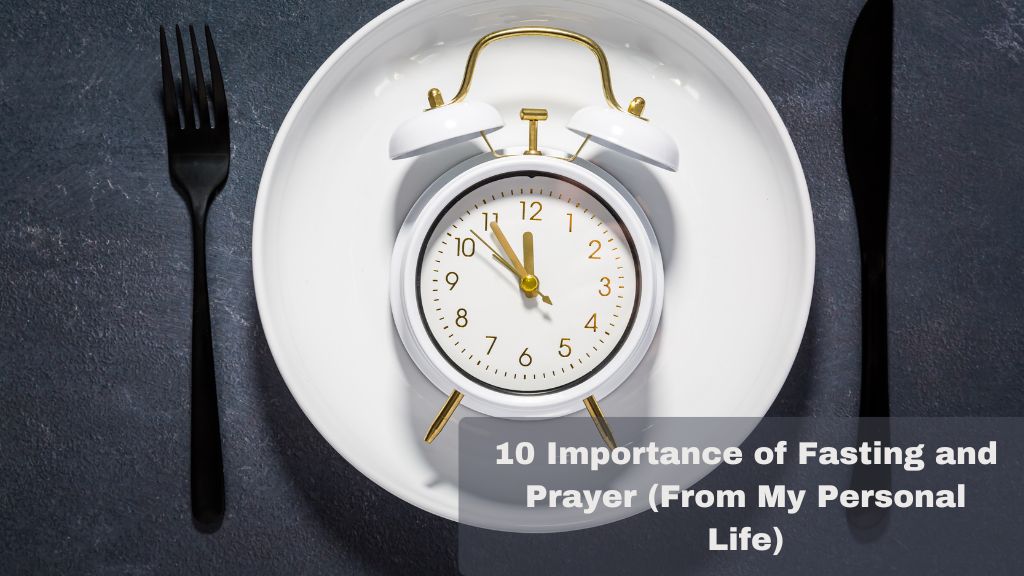
Developing a consistent prayer life can feel like a challenge, especially when life gets busy or overwhelming. But the truth is, prayer is not supposed to be complicated. It’s simply a conversation with God—one that helps us stay connected to Him, find peace, and grow spiritually. Let’s break it down into simple, doable steps that anyone can follow to build a steady and meaningful prayer habit.
1. Start Where You Are
First things first: you don’t need to be perfect or have all the right words to start praying. You don’t need to be a pastor, know every Bible verse, or feel particularly “holy.” Just come as you are. God’s not looking for perfection; He’s looking for connection. Whether you’re joyful, stressed, angry, or confused, bring that to Him. He wants to hear from you, just as you are.
2. Make Time for Prayer
Consistency in prayer starts with making it a part of your daily routine. Think about it: we make time for the things we care about, whether it’s work, family, or even scrolling through our phones. Prayer deserves a spot on that list.
You don’t need hours of free time to pray. Even five or ten minutes a day can make a difference. Find a time that works best for you. Maybe it’s first thing in the morning before the chaos of the day starts, during your lunch break, or right before you go to bed. What matters is that you prioritize it and stick with it.
3. Create a Prayer Space
Having a designated spot for prayer can make it easier to focus. This doesn’t have to be anything fancy—just a quiet corner of your home, a spot in the park, or even your car if that’s where you find peace. Add a Bible, a journal, or anything else that helps you connect with God. By setting aside a specific place for prayer, you create a sense of intentionality and routine.
4. Keep It Simple
Sometimes we overthink prayer and feel like we need to use fancy words or follow a specific formula. But God isn’t grading your vocabulary or your theology. Prayer can be as simple as, “Thank You, God, for today,” or “Please help me with this situation.”
If you’re not sure what to say, you can use tools like the Lord’s Prayer (Matthew 6:9-13) as a guide. Break it down into parts and make it personal: praise God, ask for your needs, seek forgiveness, and ask for guidance. Simple, heartfelt prayers go a long way.
5. Use a Prayer Journal
Writing your prayers down can help you stay focused and intentional. A prayer journal is a great way to track what you’re praying for and see how God answers over time.
You can write about anything: your thoughts, feelings, specific requests, or things you’re thankful for. It’s also a beautiful reminder of how far you’ve come in your prayer journey and how faithful God has been in your life.
6. Set Reminders
Let’s be real—life gets busy, and it’s easy to forget to pray. That’s where reminders come in. Set an alarm on your phone or leave sticky notes in places you’ll see them, like your mirror or desk. These small nudges can help you remember to pause and pray, even on the busiest days.
7. Incorporate Scripture
The Bible is filled with prayers and promises that can inspire and guide your own conversations with God. Reading a verse or two before you pray can help you focus and give you something specific to talk to God about. For example, if you’re feeling anxious, you can read Philippians 4:6-7 and then pray about what’s on your mind.
You can also pray Scripture directly. For instance, turn Psalm 23 into a personal prayer by saying, “Lord, thank You for being my shepherd. I trust You to guide me and provide for me today.”
8. Pray Throughout the Day
Prayer doesn’t have to be limited to a specific time or place. You can talk to God anytime, anywhere. Maybe it’s a quick prayer of gratitude while you’re drinking your coffee or asking for wisdom before a big meeting. These short, spontaneous prayers keep you connected to God and remind you that He’s always with you.
The Bible says to “pray without ceasing” (1 Thessalonians 5:17). That doesn’t mean you have to be on your knees 24/7. It means keeping an open line of communication with God throughout your day.
9. Join a Community
Prayer can be even more powerful when you do it with others. Joining a small group, prayer meeting, or even just praying with a friend can give you encouragement and accountability. It’s comforting to know you’re not alone in your struggles and that others are lifting you up in prayer.
If you’re new to group prayer, don’t feel pressured to say a long or eloquent prayer. Just speak from your heart, or even stay silent and listen. God hears silent prayers too.
10. Be Patient with Yourself
Building a consistent prayer life takes time. There will be days when you forget to pray or don’t feel like it. That’s okay. Don’t beat yourself up or give up entirely. Instead, ask God to help you stay committed and get back on track.
Remember, prayer is not about checking a box or meeting a quota. It’s about building a relationship with God. Relationships take effort, but they also come with grace and understanding.
11. Celebrate Small Wins
Every step you take toward a consistent prayer life is worth celebrating. Did you pray for five minutes today? That’s amazing! Did you remember to thank God for something small? That counts too. Over time, these small moments add up and create a strong foundation for your prayer life.
12. Trust the Process
Prayer is not just about what you say to God; it’s also about what He says to you. Sometimes, answers come quickly. Other times, you may feel like you’re waiting forever. Trust that God hears you and is working behind the scenes, even when you can’t see it.
Developing a consistent prayer life is a journey, not a destination. It’s about progress, not perfection. Take it one day at a time, and remember that God is always there, ready to listen, guide, and walk with you. Start today, and let prayer become a natural and joyful part of your life



